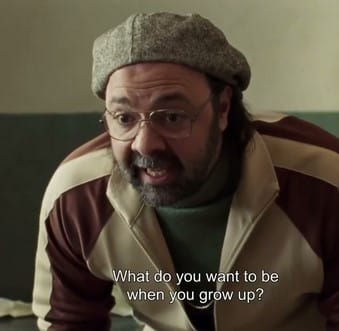Watercooler Pick

Till
- Movie
- Where to Find It: Theaters
- Rating: PG-13
- Release Date: October 14, 2022
- Runtime: 2 hours 10 minutes
Recommended by:
Share on social media
Find More Watercooler Picks
The scripted retelling of the true story of Emmett Till, the 14-year-old Black boy from Chicago who was lynched in 1955 while visiting cousins in Mississippi, as told through the eyes of his mother, who channeled her grief and anger into an unrelenting quest for justice.
Whoopi Goldberg plays Emmett’s grandmother and is one of the producers. Frankie Faison (Coming to America, The Wire) plays Emmett’s grandfather. You may not have heard of Danielle Deadwyler, the actress who plays Till’s mother, but you will be hearing about her come awards time.
 With the country’s racial climate as it is today, Till comes at the right time. A historical look at what happened after the horrific killing of an innocent young boy, the story manages to start in a place of joy and end on a note of hope. It also avoids showing any actual violence — a vow made by director and writer Chinonye Chukwu — and instead looks at the impact of the savage murder on his mom, Mamie Till Mobley, who ultimately galvanized a movement.
With the country’s racial climate as it is today, Till comes at the right time. A historical look at what happened after the horrific killing of an innocent young boy, the story manages to start in a place of joy and end on a note of hope. It also avoids showing any actual violence — a vow made by director and writer Chinonye Chukwu — and instead looks at the impact of the savage murder on his mom, Mamie Till Mobley, who ultimately galvanized a movement.
We meet Till as a wide-eyed, wet-behind-the-ears boy, played with great innocence and exuberance by 15-year-old Jayln Hall. He captures a teenager’s need to spread his wings and just be free — and free of trouble. But his personality, despite warnings of major differences in the Jim Crow South, left him ill-prepared for what would happen next.
Affectionately called Bo or BoBo by family and friends, Till’s mother cautions her son before he leaves the more progressive Chicago for the South: stay with his family and keep under the radar, she urges, and be sure to appear “small” in front of white people.
She constantly worries about her only son from the moment he leaves for the brief vacation, appearing to have premonitions of his fate. Actress Danielle Deadwyler, unknown to many, stuns with her performance as Mamie. Any restraint she shows early turns into unbridled sorrow. Her mourning is one of the strongest images you’ll ever see portrayed on film and likely to catapult her to front-runner status for an Oscar.
As Till’s mother decides she wants photos of her son’s unrecognizable face published, the director shows various parts of his mangled body. One of the most powerful scenes is when Mamie sees her son, head to toe, for the first time.
 She ultimately channels those raw feelings, and soon finds herself in a new world fraught with politics. How she wades through it all, the loss and anger and resistance, is an important story worth watching. What drives it all home is Deadwyler’s revelation as Mamie. Whether she speaks, screams or silently thinks, you can feel the unmitigated pain that she will never recover from.
She ultimately channels those raw feelings, and soon finds herself in a new world fraught with politics. How she wades through it all, the loss and anger and resistance, is an important story worth watching. What drives it all home is Deadwyler’s revelation as Mamie. Whether she speaks, screams or silently thinks, you can feel the unmitigated pain that she will never recover from.
Capturing the wake of a critical moment in history through a mother’s grief and determination, Till walks a tightrope balancing the devastation of what happened with the power of what it inspired. It’s a movie you won’t want to turn away from.
Everyone should watch Till and learn about this turning point in history — to ensure that what happened to Emmett Till never happens again, and to understand what it took to inspire and sustain a movement that still resonates today.
While the film can be slugging in parts, it’s worth sticking it out. The story is told with attention to historical details. Keith Beauchamp, a writer and producer of the film, is familiar with his topic, having previously made the documentary The Untold Story of Emmett Louis Till (2005).

Jerry Barmash








